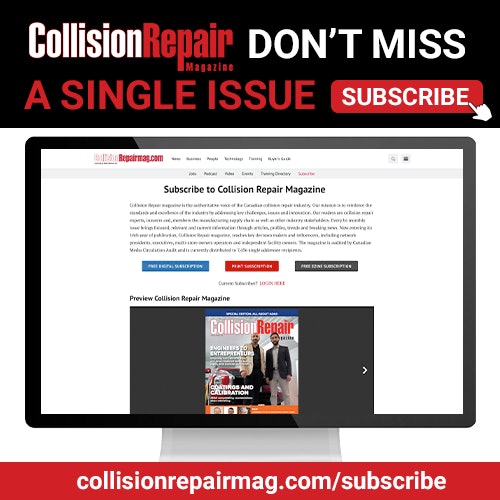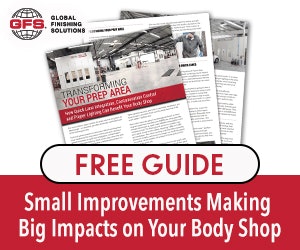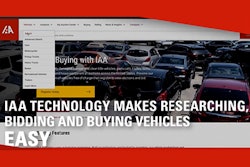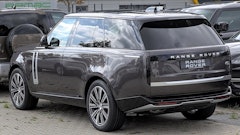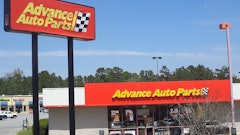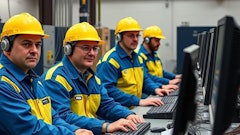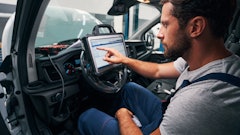
By Jeff Sanford
Toronto, Ontario — November 3, 2016 — SEMA has grabbed a lot of headlines this week, but there’s still been plenty of news outside the Las Vegas Convention Center. This week we take a look at how Facebook slapped down an insurer, ABRA’s very successful training program and an alumninum-related change in the technology behind the big red bows found in car showrooms.
– Believe it or not, there is one major manufacturer of those big red bows dealerships put on the cars displayed in their showrooms. That company is, helpfully, known as the Car Bow Store.
The company put out a press release this week announcing a change in the basic design of the average big red car bow. The company is releasing a new line of car bows which adhere to the hoods of vehicles with a giant suction cup. The change comes in response to the increased use of aluminum in car bodies.
According to the release, “This new product is a reaction to the trend of auto manufacturers aggressively shifting towards aluminum components in their vehicles including aluminum hoods and body panels which are lighter and more fuel efficient than steel. This change is quickly making traditional magnetic car bows obsolete.”
The President of Car Bow Store, Michael Rudolph, was quoted as saying that, “The suction cup is the ideal choice for securing a car bow since it is effective with steel, aluminum and fibreglass hoods and is softer and more scratch-resistant than a magnetic base … We are excited to be the innovative leader in the car bow industry and believe that suction cups will be the new standard for car bows in the future.”
– Collision Repair magazine recently reported on a training program that major US collision brand ABRA Auto & Glass is offering. The program is designed to get young apprentices into the industry through paid training. KARE 11, an NBC affiliate, offers an interesting update on the program.
According to the report, ABRA estimates that there will be a need for 100,000 body technicians over the next five to six years.
Mike Willis, Director of Training and Development at ABRA, is quoted as saying, “I think there are a number of industries that are currently suffering from a shortage of skilled labour.” A large percentage of current techs are expected to retire over the next half decade, accenting the shortage of talent.
To solve the skills shortage, ABRA pays for training and guarantees a job after the program. According to the report, locals jumped at the chance to join the program. The company was, “… hoping to get around 50 students to apply to their Career Development Academy, but they ended up with 500 applications.”
– “Chinese automakers are going global and discarding their Chinese names,” according to a Forbes magazine story. This column has reported on the new auto brand, Lynk & Co. The company is a subsidiary of Geely, a “medium-sized carmaker based in Hangzhou, China,” according to a report. Another Chinese automaker, Beijing Automotive Industry Corporation, recently switched its name to “Lucid Motors,” and has named its electric car, Atieva.
– The US arms of five major automakers have all released position statements on diagnostic scanning as a requirement in the collision repair process. You can find the documents at oempositions.com.
– Earlier this week a UK car insurer announced it was going to begin scanning Facebook posts to better assess risk of new clients. The company made an abrupt about face by the end of the week after Facebook pointed out that the terms of use prevented any company from doing that kind of thing. According to a report on Mashable, “The internet giant said that Admiral’s contravened Facebook’s privacy policies, preventing the launch of the technology just hours before it was due to be launched … Admiral had planned to use Facebook status updates and ‘likes’ to build up a ‘risk assessment’ of first-time motorists, offering insurance discounts to those likely to be safer drivers … the move was criticised by privacy campaigners as ‘intrusive’, [and] the company dropped the plans …”
– In 2015, automakers sold a record “17.5 million cars and light trucks in the US. Unfortunately for auto investors, the days of record sales may have come to an end,” according to a news story on the latest auto sales numbers. An analyst was quoted as saying, “We believe [the U.S. auto market] has peaked … If you’ve noticed the car sales reports, some of them have been down from last year … We expect another dip. What we are seeing is a slowing of the retail demand. We’re seeing inventories rise a bit, and as a result, they’re taking longer to sell … We are plateauing at a very high level. We still think there are a couple more years of 17 million sales in front of us … [but] There is an affordability issue. There are people who have been frozen out of the new car market. That’s why we see very old cars on the road. The average age is still at 11.5 years. Despite all the record sales, that’s actually gone up.”

